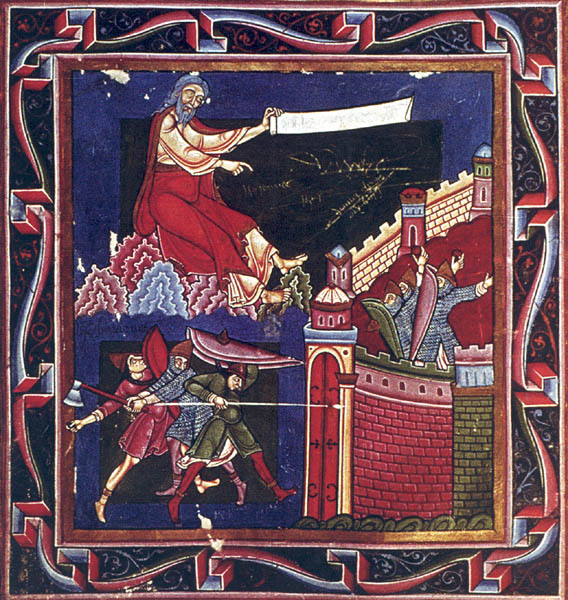Image Details

The Master and Fellows of Corpus Christi College, Cambridge
Jeremiah unfurls his scroll as the Babylonian armies besiege the gates of Jerusalem. Inside the wall, the Jerusalemites defend their city, in this illumination by Master Hugo from the Bury Bible (c. 1135). But, as Jeremiah predicts, they will fail: “For thus said the Lord concerning the royal palace of Judah: ‘I will make you a desert, uninhabited towns. I will appoint destroyers against you, each with his tools; they shall cut down your choicest cedars, and make them fall into the fire.’ And when many nations pass by this city and one man asks another ‘Why did the Lord do thus to that great city?’ the reply will be, ‘Because they forsook the covenant with the Lord their God and bowed down to other gods and served them’” (Jeremiah 22:6–7).
While Jerusalem was under attack, Jeremiah urged the Judahites to refrain from worshiping other gods, to repent and, finally, to submit, because Babylon’s attack was part of God’s greater punitive plan for Israel: “Thus said the Lord: ‘I am delivering this city into the hands of the Chaldeans and of King Nebuchadrezzar [Nebuchadnezzar] of Babylon, and he shall capture it For the people of Israel have done nothing but evil in My sight since their youth’” (Jeremiah 32:28–30). Jeremiah’s words were soon proved true: In 586 B.C.E. Nebuchadnezzar breached the city walls, destroyed Jerusalem and exiled the Judahites to Babylon.
